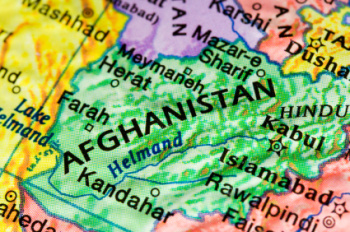As part of a scheduled transition to hand over seven Afghan cities or provinces to Afghan security forces, NATO troops drew down from the relatively peaceful province of Bamiyan and the eastern town of Mehtar Lam in recent days. Yesterday, British troops in Afghanistan’s volatile Helmand province handed over control of the city of Lashkar Gah, said to be the least stable of the seven.

But the transition is mostly symbolic in nature. Only half of Lashkar Gah – about one square mile – will take part in the transition and has already been controlled by Afghan forces for over a year, with Taliban strongholds along the outskirts. Furthermore, NATO forces will still have responsibility over certain parts of the city and will be “on hand to assist” the Afghan forces at any time.
And recent violence suggests they will be called upon. On Monday, seven policemen were killed at a checkpoint near Lashkar Gah and on Saturday a British soldier was killed while on a routine patrol in the area. On Tuesday, as NATO was handing over responsibility for Mehter Lam, mortar attacks against the city were reported. And in an operation being carried out by Afghan security forces in Kandahar, three police were killed by insurgent gunfire.
The recent spate of violence as this scheduled transition has begun – and indeed since it was announced with the Taliban attack on the Kabul Intercontinental hotel – is consistent with the al-Qaeda strategy to support Taliban attacks against NATO in order to sustain the US occupation as long as possible. Keeping US/NATO forces embroiled in the Afghan war not only serves to bleed out American resources, it is also the greatest generator of extremist recruitment.
The remaining four areas to be handed over are Kabul province, Panjshir province, Herat city, and Mazar-e Sharif city, many of which have also seen an upsurge in violence of late. The Obama administration’s stated prerequisites for a continued withdrawal include security requirements that are apparently not on track to be met in time, fulfilling al-Qaeda’s plan to keep us there longer.


